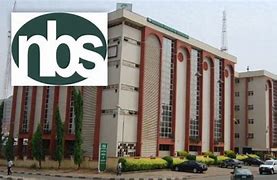The National Bureau of Statistics (NBS) has revealed that the average debt owed by every Nigerian has reached N619,501, following a substantial increase in the country’s total public debt.
This was disclosed in the latest debt report by the Debt Management Office (DMO), which shows Nigeria’s public debt standing at N134.297 trillion as of the second quarter of 2024, marking a N13 trillion increase from the N121 trillion recorded in March 2024.
With Nigeria’s population estimated at 216.7 million, this debt figure translates into an average burden of N619,501 for every Nigerian.
The debt portfolio includes both external and domestic debt, which are liabilities owed by the Federal Government of Nigeria (FGN), state governments, and the Federal Capital Territory (FCT).
READ ALSO: How Tinubu’s Govt Loans Push Nigeria’s Debt To N121trn
The data breaks down Nigeria’s debt portfolio with domestic Debt at N71.2 trillion, which includes N66.9 trillion owed by the federal government and N4.2 trillion by the states.
External Debt of N63 trillion, comprising N55.8 trillion owed by the federal government and N7.1 trillion by the states.
This increase in the debt profile has intensified calls for the Nigerian government to minimize its reliance on borrowing.
Economists and analysts warn that the mounting debt could impact future economic stability, especially if growth does not keep pace with debt service obligations.
READ ALSO: Nigeria Becomes World Bank’s Third-Largest Debtor
The rising debt figures have sparked public concern, particularly as economic pressures mount on Nigerians due to inflation and other fiscal challenges.
Critics argue that the country’s high reliance on loans could lead to long-term economic constraints, as resources that could be allocated for development are instead directed towards servicing debt.
The Nigerian government, however, maintains that borrowing is necessary to fund critical infrastructure and development projects, essential for driving economic growth.
Nonetheless, experts advocate for a more diversified revenue generation approach to reduce the need for external and domestic borrowing, emphasizing the importance of investment in non-oil sectors and the improvement of tax collection mechanisms.
With the current trend, Nigeria’s fiscal path remains a topic of intense debate as stakeholders look toward sustainable solutions to manage the debt burden without compromising economic growth and stability.
